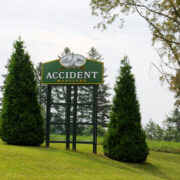How One Interabled Couple Learned to Adventure Again
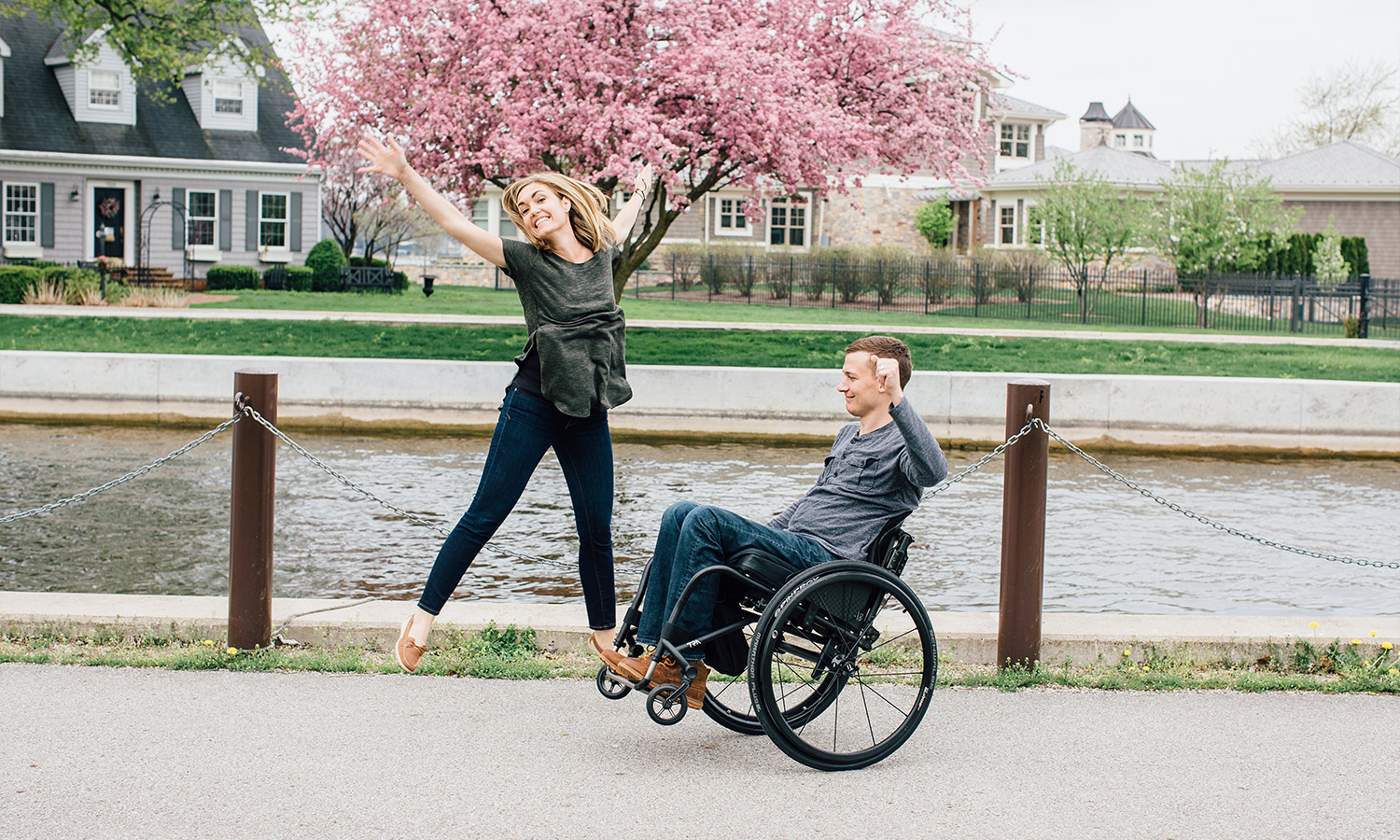
It happened fast. One minute, we were an adventurous newlywed couple working our first professional jobs while renovating a home on the weekends. The next minute, we found our world flipped upside down from an early morning accident, which resulted in my barely 29-year-old husband sustaining a spinal cord injury.
In June 2016, my husband Derek became a T4 paraplegic (paralyzed from the armpits down) in an accident that happened less than a mile from his office. We spent the next four months in hospitals and rehab learning how to live life from a wheelchair before moving back to our city.
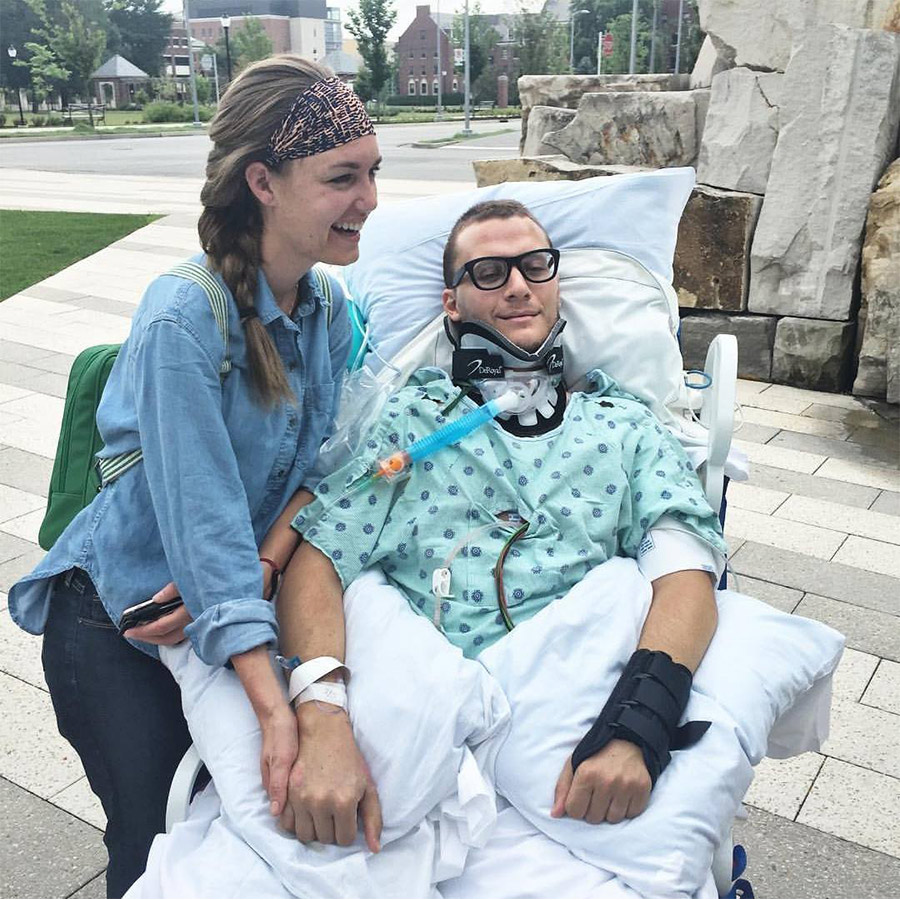
We went from being a couple who could and would travel at the drop of a hat to painstakingly planning a weekend getaway. For wheelchair-bound families, calling restaurants, researching hotels, and mapping out accessible pit stops is a necessary part of any road trip. And although road trips take more forethought, they provide more flexibility because you aren’t limited to one city. You can stop in that cute, small-town to grab a coffee or stop by the state park for a quick accessible hike before hitting the road again.
The first road trip we attempted was to Kentucky for my husband’s 30th. I spent a couple of months planning what I hoped to be a memorial weekend away with 8 of our close friends. Not even a year post-accident, I wasn’t even sure WHAT I was looking for when I picked out the AirBnB or when deciding what distilleries to visit. And let’s be honest, it showed!
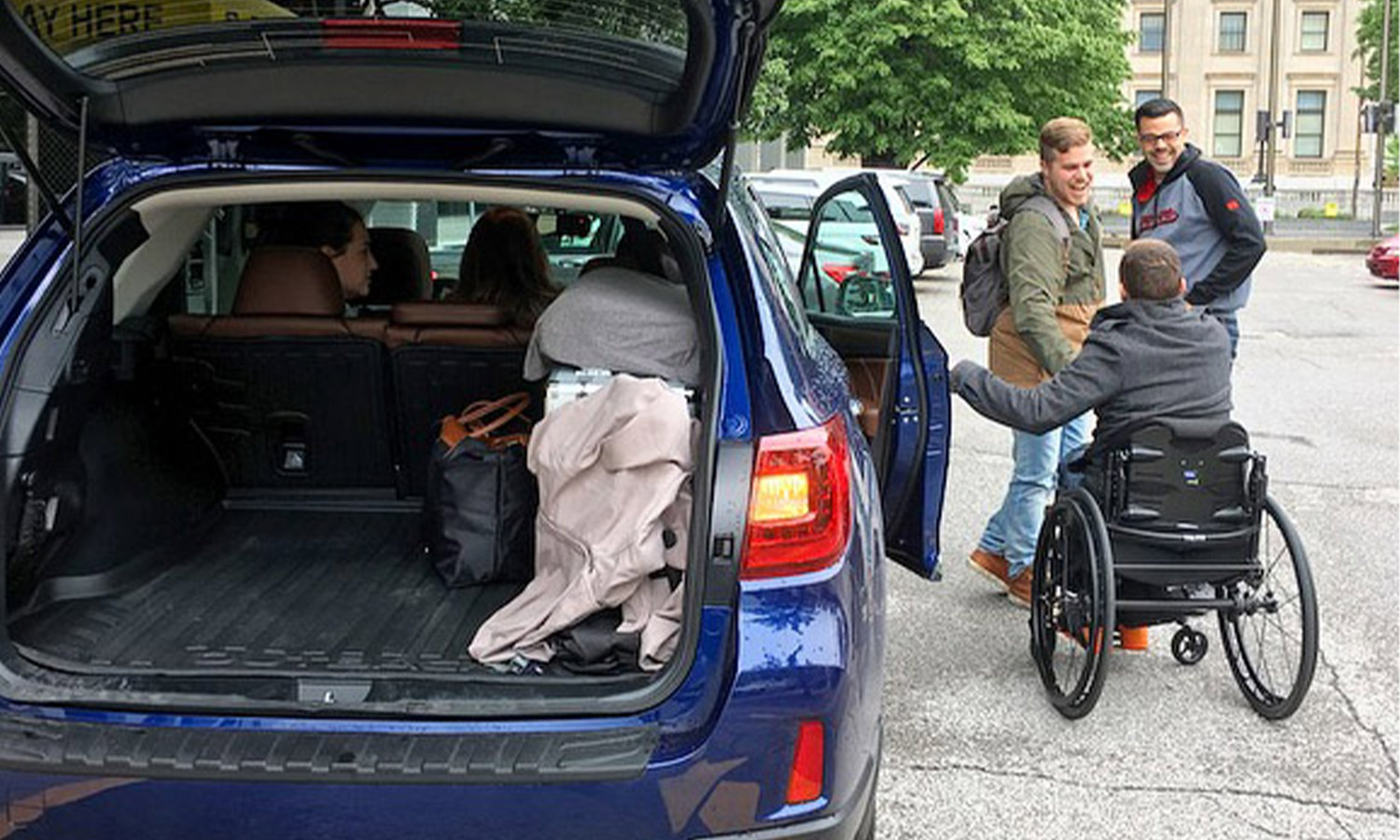
We woke up that morning with those common road trip excited jitters. Our friends arrived mid-morning and we went about loading up the vehicles. Derek’s wheelchair and medical supplies took up a majority of one car, so we asked everyone to pack light. As we cruised down 64 East with the guys in one car and the girls in the other, I took a deep breath and for the first time in 9 months, I felt “normal” again. We were just your average couple off to enjoy a fun weekend with our friends.
The normal feeling came to an abrupt halt when we arrived at the Airbnb and we realized Derek’s chair wouldn’t fit through the only restroom on the main level (rookie mistake). After some MacGyver-ing the situation, we figured out a solution and got on with the rest of the house tour. It was a beautiful cabin-style home built near a large lake and perfect for Derek to play with the new drone he received for his birthday. We settled in that night with steaks on the grill and prepared for our Bourbon Trail tour the next day.
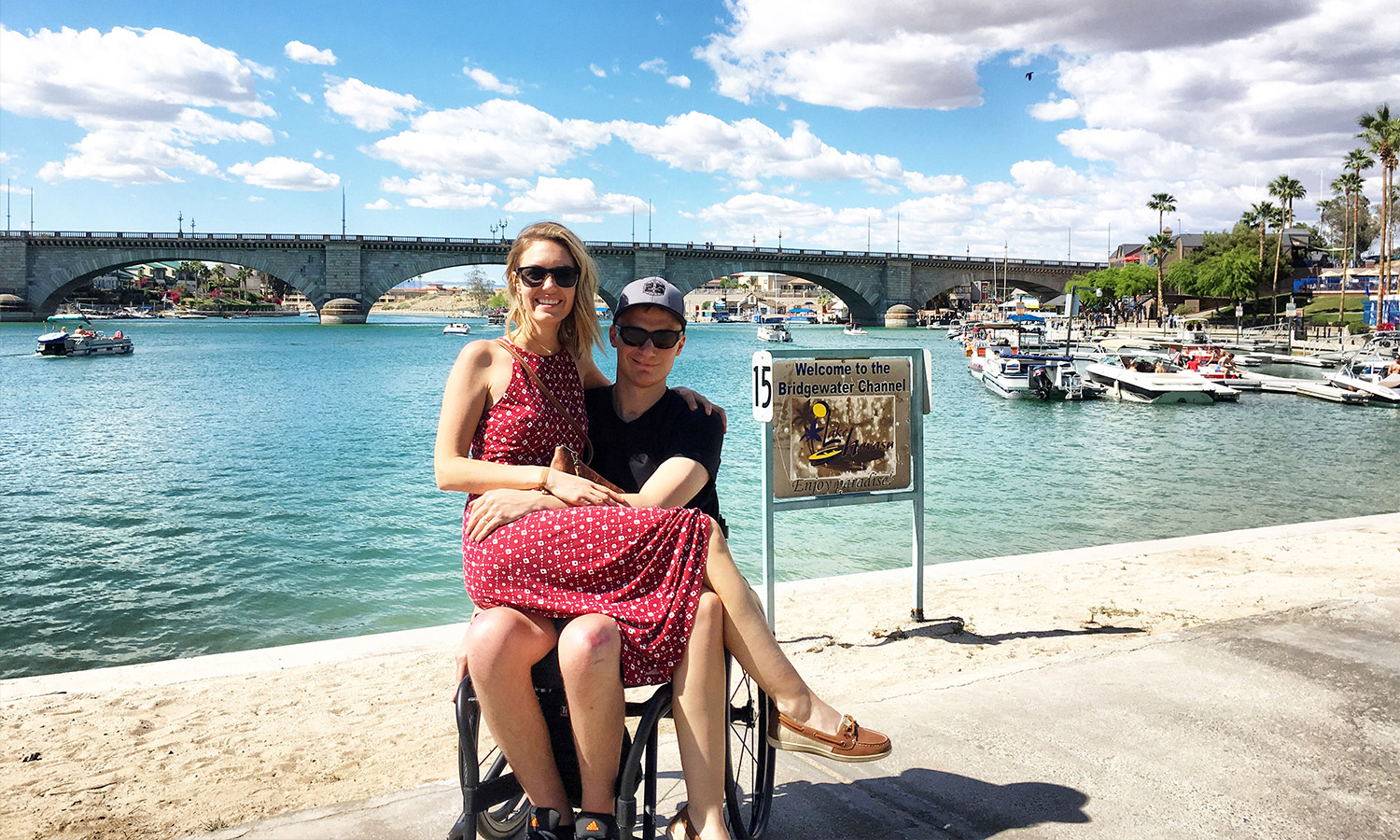
As we toured several different distilleries, I learned the important lesson of calling ahead. Free-spirited LeAnne just assumed things were accessible unless noted otherwise. Not the case. According to the American Disabilities Act, if your establishment was built before 1990, you are not required to update your business to be accessible. With distilleries often being quite old, we were met with gravel driveways, steps throughout the tour, and bathrooms on second floors of buildings. Although it was frustrating, we thankfully weren’t met with any issues we couldn’t tackle with the help of our friends.
The weekend flew by and we arrived back home quite proud of ourselves. We did it! We stepped outside of our comfort zone, learned lessons, and knew what we needed to improve for the next time, which ended up being a road trip to North Carolina.
Today, with years of insights now under our belts, I’m armed with tips for fellow interabled road trippers and businesses alike.
If you find yourself anxious to take a road trip again after what life has thrown your way, we would encourage you to start small. There’s no need to “go big or go home” when building back confidence for adventures. Road trips have been a necessary salve to our hearts these past few years, and we think you’ll find them helpful as well. You can’t beat the excitement of waking up in your bed knowing you are about to head out on an adventure that day. Loading up the car, double-checking your packing list, swinging by your favorite coffee place on your way out of town… there really isn’t a feeling like it!
Life is short, and we feel confident that you won’t return from a road trip wishing you would have stayed home!
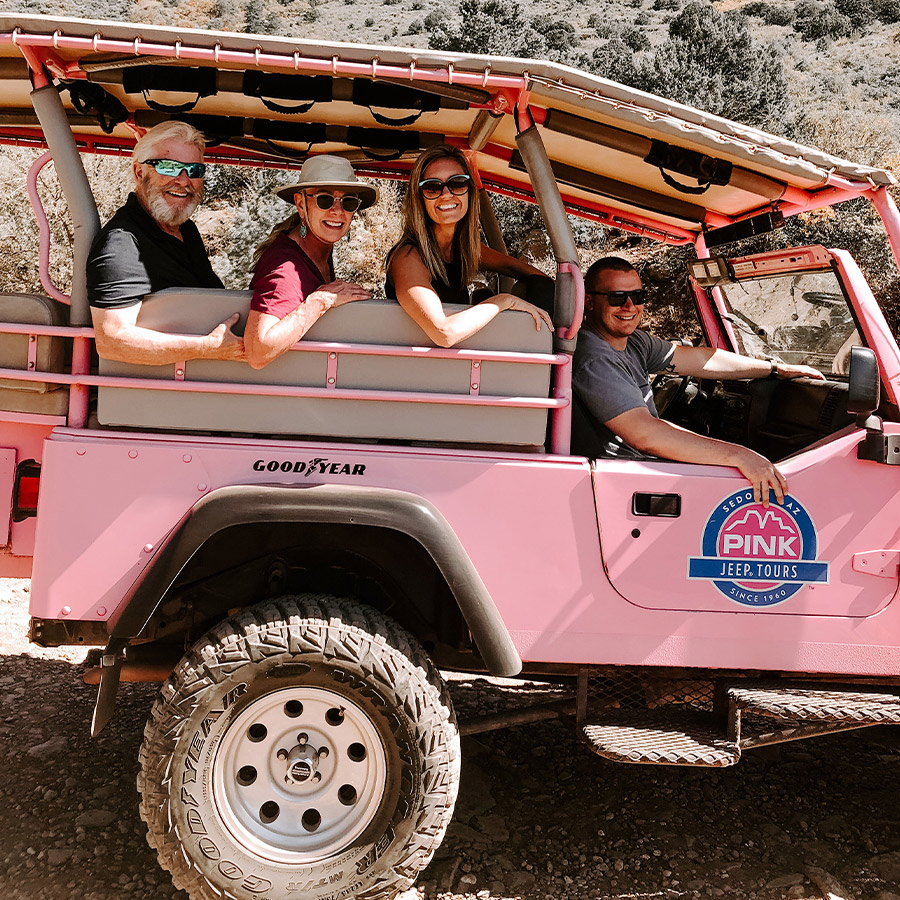
Tips for Interabled Road Trippers:
As an interabled couple, it can be so easy to sit back and not move until the world changes for us. But the truth is, we’re rare and we know that! We can’t expect others to make accommodations for us if they don’t even know what we need.
- If possible, call ahead, no matter the establishment. Talking to someone on the phone about parking, seating, or the “accessible trail” will give you a better idea of what to expect.
- When making dinner reservations on the phone or an app, be sure to note that you have a guest in a wheelchair.
- Ask some friends to join you! We’ve learned that road tripping with others is a bit easier with splitting up the driving, extra hands to help with lifting, etc.
- Be flexible. You may arrive somewhere and need to wait for parking, get stuck in the car because it’s raining hard outside and you don’t want to soak the wheelchair, or come across an establishment that isn’t meeting your needs. Be ready to switch up plans and be as ok with it as possible.
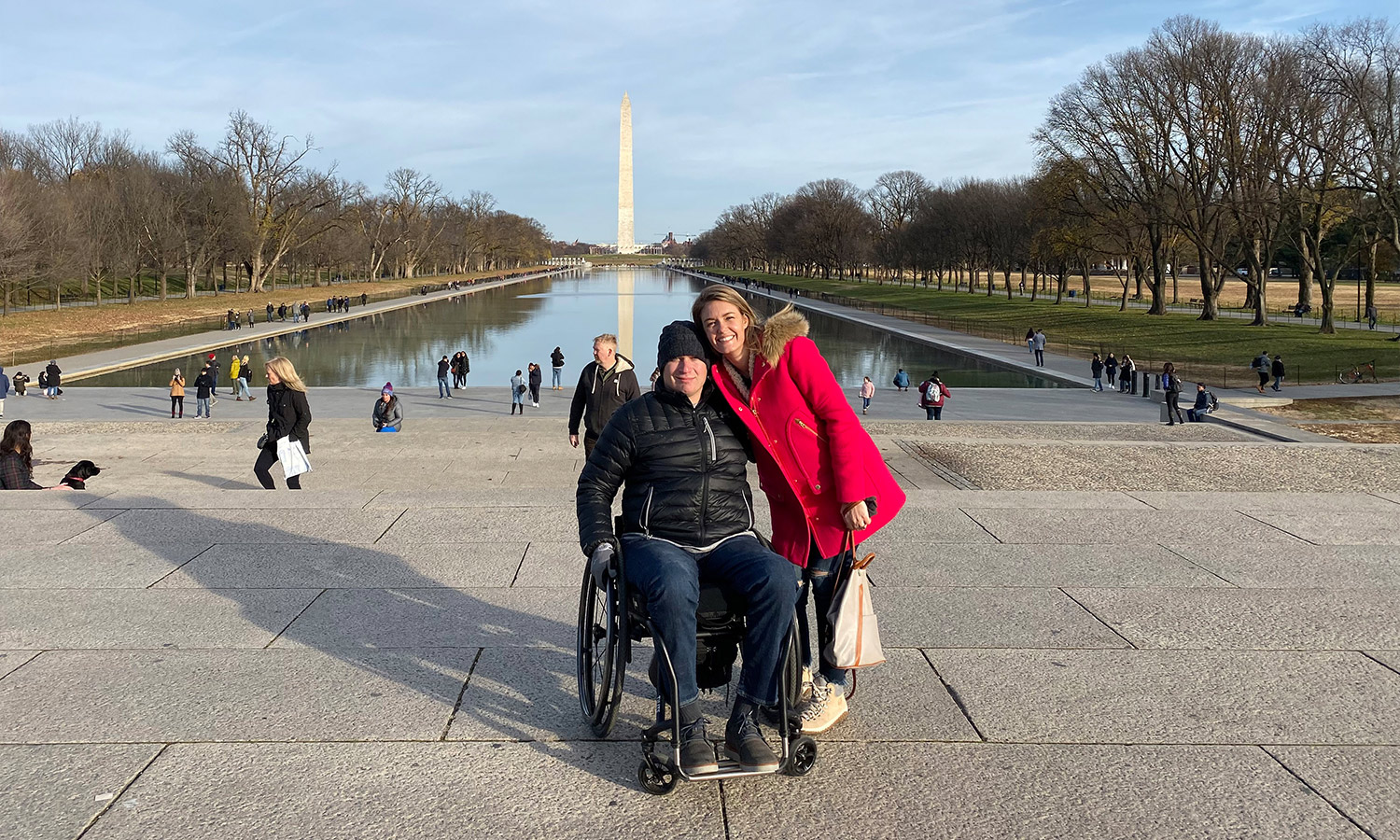
Tips for Business Owners:
We want to go to your town’s best restaurant, to see the beautiful view from the park trail, and to hear your local band play at an outdoor venue. With a little help from your local community, your town has the ability to make a family like ours have the best road trip experience!
- If you have a business website, please add a line or two about accessibility. Do you have a front step? Does your restaurant only have picnic tables? These are the details that will make or break a visit for someone with a disability.
- Stroll through your business with the thought of being in a wheelchair. Do you have a lot of “stuff” sitting on the floors that would keep someone from maneuvering the area easily? Are the handicapped parking spaces usually inhabited by someone who shouldn’t be legally parking there? Create a culture at your business where people with disabilities are both considered and accommodated.
- If you own a hotel or bed and breakfast, avoid listing your ADA rooms but instead, add a line on your website asking guests to call in order to book an ADA room. This allows those rooms to be reserved for guests who truly need those accommodations.
Lead Photo: LeAnne Lavender
About the Author
LeAnne Lavender
LeAnneresides with her husband, Derek, in the midwest with their dog Barkus Adroolius. In her free time, she enjoys gardening, hosting game nights, and puzzling with Derek. To follow the Lavender's story, please join them atlavenderslongshot.comor on Instagram or Facebook at @lavenderslongshot.







